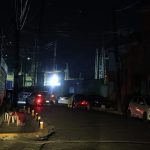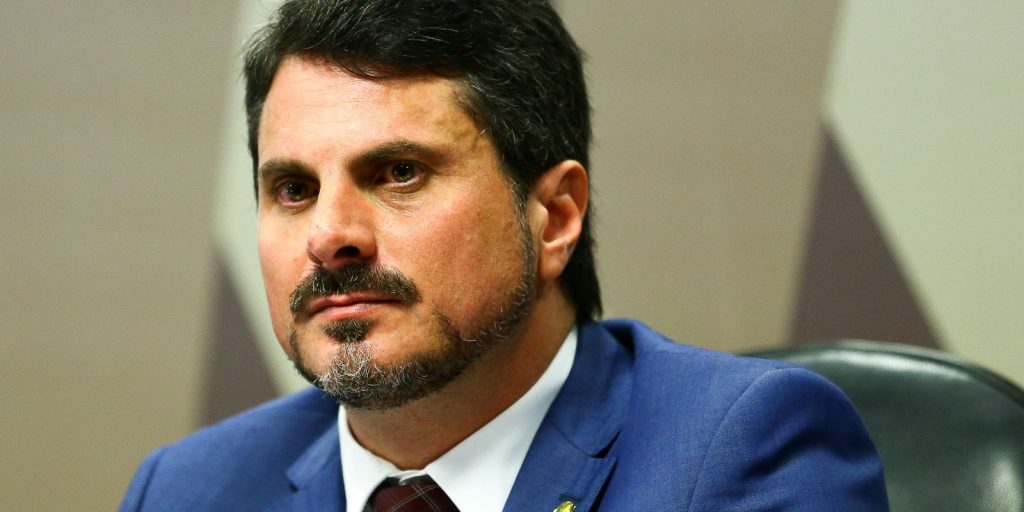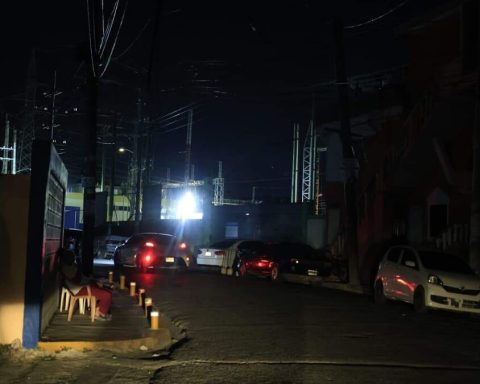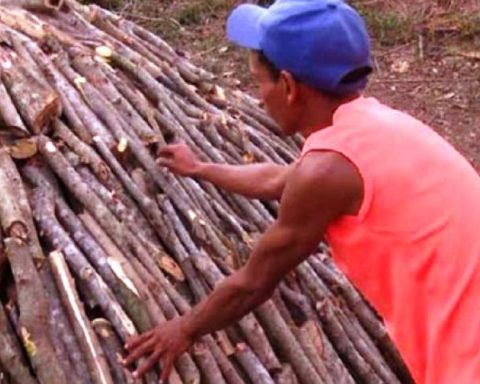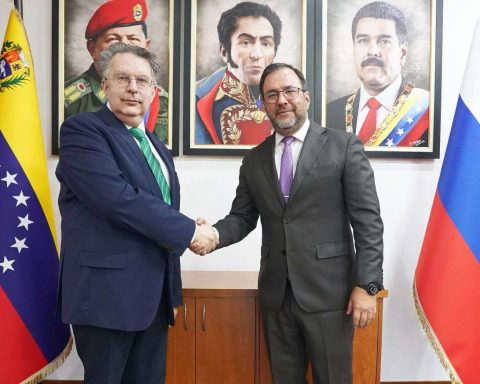
With 13 days in power, Donald Trump He has made a series of decisions that directly impact Peru and Latin America. The internationalist Óscar Vidarte Analyze this brief period and glimpse what our relationship with Washington will be in the coming years.
What will be the impact of Donald Trump’s policies in Latin America? Will it be economical, will it be humanitarian or will it be a mixture of many things?
Difficult question. I think there will be an impact that will have different nuances. If the supposed Commercial War with China The Latin American countries that trade with China will be affected due to the decline of Chinese growth are probably increased. In the same way, if the imposition of tariffs intensifies, that can also have economic consequences for our countries. Now, on the other hand, I believe that the revaluation of the US economic aid, being the United States the main cooperating world and the region, can also affect the development projects that are implemented in our countries. And the fact of implementing more hostile immigration policies against the immigrant, being the Latin American population the main group that forms irregular migration in the United States, can also affect our multi -way nationals.
You tell me that the United States will want to stop the growing relationship of Latin America with China. Will your main weapon of coercion be tariffs?
Not only tariffs. I think too Development aid will be a tool. The US authorities already said, the freezing of aid for 90 days will be revalued according to the interests of the United States, how much they serve the interests of the United States. Not how much impact they have for the development of our countries, which should be the most important.
The threat as part of the US foreign policy
It will be a unilateral policy.
Yes, obviously. The policies they develop I think they will be much more benevolent with the countries that are completely aligned. For example, I’m sure they can be a lot more benevolent on migratory issues with aligned. And I think it will use, as it has already been doing, the threat. The threat is an important tool in the foreign policy of President Donald Trump.
You can see: Trump Advisor raises 60% tariffs on products that pass through the Chancay Megapuerto to the US.
In November 2024, Peru celebrated the inauguration of the port of Chancay. But that party can now be the main scenario of conflict with the United States.
I believe that Trump’s agenda to Latin America has been built, since its first government, on three fundamental axes. One, the migratory axis. And there Peru is not a country that generates much attention. There are regions such as Central America, or countries such as Mexico, Colombia, Venezuela, Ecuador, which generate much more attention for their number of migrants. Two, the economic issue. There, Peru also does not generate much attention, unlike Mexico. Peru and the United States have a fairly favorable commercial relationship. And three, the issue of drug trafficking. And in the drug trafficking, Peru is not so relevant because most of Peru’s drug trafficking goes to Europe or Brazil. That allowed us to bury the storm in Trump’s first government.
Until we get to now.
Yes, now there is a fourth element that becomes more important in American foreign policy, regardless of our government, which is the Chinese component. And starting from the strategy that Trump is using with China, which is, unlike the Democrats, more frontal, there it seems to me that Peru can have a problem. And this has a name: Chancay port. And as long as it is consolidated, that I think it is what will end up happening, as the main port of the South Pacific, because it will change the shipping and commercial dynamics of the entire Pacific in the direction of Asia, there will be tension there. If we add that in the United States they also see Chancay as a possible military port, from a geopolitical perspective, I believe that over time, the relationship between Lima and Washington can be affected. For that reason, when APEC was carried out in Peru and the port of Chancay was inaugurated, in those same days the Talara project for spatial purposes began. Somehow, Peru told the United States: Look, Chancay is a commercial port and I have an agreement to develop a space station, which will basically be used by them, not by us.
Talara’s space project
Indeed, in November, President Biden confirmed that there is interest in building this space port in Talara, and an agreement was also signed to improve the port of Paita. Will both projects remain in force with Trump?
There is no reason not to continue Space Project Trump will continue to give importance to the military and spatial theme within the military issue. In addition, there is a lot of Trump’s interest in developing space projects with private actors that at this time constitute very close actors of his government.
We have a NAFTA with the United States. Can that give us any advantage over a probable attack in the tariff theme or is that no guarantee?
There is no guarantee. We have seen it with Mexico. There is a commercial agreement with Mexico, but the same has threatened to implement tariffs. He said that in February he will implement all that, having an agreement. And we have seen it with Colombia last week, having a FTA. The simple refusal to receive a couple of airplanes with Colombian deportees immediately implied tariff implementation. Not from 5, not 10, but 25% with the possibility of being increased to 50%. Then, the United States in relation to us has Many tools to exert pressure And now he is using them in the brightest way. The American garrote is being used in the brightest way.
And what about remittances? Because if there are deportations and if they are massive, it probably affects the volume of what reaches the country, which is the equivalent of the 1.7 of GDP.
I don’t think there are many consequences on remittances. Recall that the Peruvian population abroad is estimated at approximately 3.7 million. In the United States there are 1.1 million, according to Foreign Ministry figures. And Peruvian irregular migrants in the United States are 300,000. So, we would be talking about 10% of Peruvians abroad and it is not that all 300,000 are going to be deported. It’s a small percentage of possible deportees of the total Peruvian population abroad.
You told me that the United States will redirect the international aid you deliver thinking about your own interests. If part of what he sends, by USAID, he is intended for the fight against drugs, shouldn’t that be an issue that is within his interests?
Yes. And the same say the Mexicans, and yet the cooperation for the Mérida Plan, which is clearly linked to drug trafficking has been paralyzed. The same say a lot of countries and I think everyone has some kind of justification. But you have to be honest. This freezing of aid has not only been to Peru. I have the impression that in recent days The case has been permeatedbelieving that it is only for our country. And that is not so. This has nothing to do with Peru. What the United States government is indirectly is that it will use aid as a pressure tool. The idea is: “How much are you my ally and what so much cooperation are you going to receive?” That is dangerous.
The counterweights to Trump’s power
Something that was said before Trump’s taking of command is that he could probably not do everything he has promised. And we have already seen that justice has blocked the order that citizens took by birth to the children of immigrants. How many locks can be put and how long?
I have a greater concern. During his first government, he demonstrated two things. One, who did not know how the state worked and that cost him time. And two, he did not have the paintings, because he appeared by the limits of the Republican party. He even won without the full support of the party. But in this second government, He has the knowledge of the public, knows how the State works and has come with paintings And it has much greater strength. Therefore, something that we did not see in the first government is happening. We are seeing how in the first month of mandate an avalanche of provisions on Latin America, on China, on the environment, on social issues are being given. He already understands how to articulate all these reforms. That worries me. That’s why I think we see a much more active Trump, much more impulsive. The good thing about American democracy is that its more or less counterweight system works. And there are many counterweights. In the case of the United States, there are two very strong counterweights. One is the Judiciary. The Judiciary can avoid many policies that Trump would like to develop, such as the one you mentioned, the one linked to not giving nationality to the children of irregular immigrants born in the United States, because that goes against the same Constitution. There are going to emerge problems at the judicial level. And there is a second counterweight, which is the House of Representatives and the Senate. Although the republican presence is important, this does not mean that Republicans vote for everything Trump says. We have already seen in the past that within the same Republican party there are some fissures. In his first term he tried to implement a health policy that questioned or modified the health policy developed by Obama and that was not approved because the neoconservative themselves rejected it.
Now, he with his characteristic stridency has said that he does not need Latin America, but that contradicts his interest in taking control of the Panama Canal. Will the case of the Panama Canal agglutinate the other countries in Latin America, in a kind of defense? Or will that be only a problem for President José Mulino?
Trump has shown that he is not interested in the region. In his first government he did not travel to the region. I think only came once for a G-20 summit in Buenos Aires. From there he canceled two visits to Colombia and canceled his visit to the Americas in Lima. It does not have much interest in the region, but we are going to see if Marco Rubio, who is a secretary of state of Latin origin, can show a little more interest. In the case of Panama we are seeing rape at the beginning of sovereignty. He has pointed out that he will recover the Panama Canal and That is going against the principle of sovereignty and against international treatiesthe Torrijos-Carter agreements that supposed the return of the Panama Canal to Panamanian sovereignty. That is, it implies questions other than the right and international order, and that from Latin America let’s not say anything about it is worrying. And I believe that the Latin American response has to be very intelligent, both at the bilateral and multilateral level. It is a call to articulate common positions.
Trump has announced that he will use the Guantanamo base to carry illegal immigrants. Does this have precedents?
The truth is that I do not remember any precedent, but, as you say, take irregular migrants and transfer them to a prison, because that is Guantanamo, a prison where they have been terrorist prisoners, it is not the best. Now, the American government has indicated that it will basically transfer irregular migrants who have criminal accusations. But we are still talking about irregular immigrants who are not yet sentenced. And that doesn’t sound good. What happens is that, to better understand this, you have to first understand how the Trump government is building the narrative regarding migration. And his narrative is very dangerous. Because it is built on the basis of hostility, of Consider migrants as criminalsas criminals, rapists or murderers. It is a narrative that seeks to deport them in any way, even without considering their rights. He understands migration as a security problem, when migration, and that must be emphasized a lot, it is mainly a humanitarian issue.






